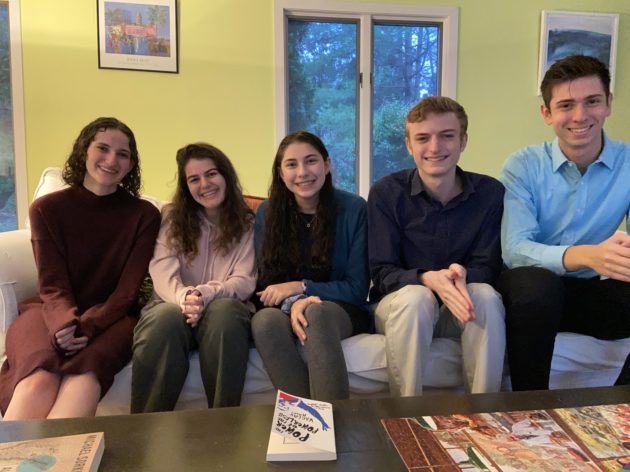Tag : Jewish spaces
January 11, 2021 by Madison Hahamy
Finding My Judaism in the Middle of Nowhere

It seemed like the natural choice in 2020: when a group of friends from college offer you the opportunity to join their quarantine pod for the fall semester, in an Airbnb in the middle of a forest in the Hamptons of Long Island, NY, you say yes. When that offer comes after more than six months of no contact with anyone other than immediate family (love you all), that YES is even more emphatic.
I was so excited by the prospect of something, anything, that would allow me to be reunited with college friends and have a change of scenery that I brushed off the fact that all of them are on the Orthodox spectrum of Jewish observance—and I am very much not.
- No Comments
January 10, 2019 by admin
Mizrachi in Memphis
I grew up in a small, tightly knit modern-Orthodox Jewish community in Memphis, Tennessee. My mother is half-Yemeni, half-Hungarian, and my dad is Kurdish (Iraqi Kurds). Aside from a few other people who came and went during my childhood, my parents, siblings and I were the only Mizrachim in our otherwise Ashkenazi community. In my 14 years of Jewish day-school education, I never once heard a Jewish educator utter the word Mizrachi. Still, from a young age, it was obvious to me that I was different.
When I got to college, I decided it was best for me to avoid Jewish spaces as a general rule. Not just the Orthodox ones, but all of ‘em. Still, there were certain special occasions during which, against my better judgment, I found myself in the Hillel House. Without fail, every time I entered that building I was asked, tersely, What are you doing here? or Who are you here with? The speakers’ confused and accusatory expressions suggested a deeper question: are you sure you meant to come here? You can’t be Jewish if you’re not white. Regardless of the denomination, “Jewish spaces” are almost certainly “Ashkenazi spaces.”
I never feel comfortable in those places.
Instead, I felt at peace with the shape of my eyes, the texture of my hair, and the color of my skin at a religious function in the United States only once. It was at an Eid event on campus. Nobody asked me who I was there with, even though I was really only there to accompany my friend Aisha; though everything I was seeing was new to me, nobody asked me if I was lost. The first time I would have been at a loss of words if someone asked me to justify my presence, I was not questioned: I could just be. For Mizrachi Jews (or any non-white Jews), I don’t think this feeling is possible in Jewish spaces in the U.S. right now.
RACHEL TSUNA, “A Mizrachi Jew in Memphis,” The Lilith Blog, November 29, 2018.
- No Comments
 Please wait...
Please wait...